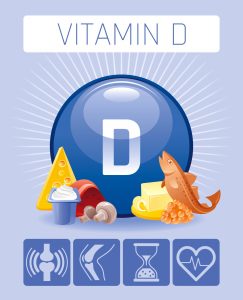 Now if you’ve ever tried to lose weight, which many of us have, then I’m sure you’ve heard the term metabolism. Usually you are told you either have “good” or “bad” metabolism. The only thing you may be sure of is that if you have a “bad” one then it will be harder for you to lose weight. But have you ever wondered what exactly this term means? If so, read below for some background on metabolism and a surprising look into how many of us have metabolic issues and what to do about it.
Now if you’ve ever tried to lose weight, which many of us have, then I’m sure you’ve heard the term metabolism. Usually you are told you either have “good” or “bad” metabolism. The only thing you may be sure of is that if you have a “bad” one then it will be harder for you to lose weight. But have you ever wondered what exactly this term means? If so, read below for some background on metabolism and a surprising look into how many of us have metabolic issues and what to do about it.
What is metabolism?
Metabolism is simply the way your body breaks down foods and uses them for energy. As you grow older, your metabolic rate naturally slows down. Not only that, but natural aging also leads to reduced levels of lean muscle mass. In turn, this will cause a further drop in your metabolic rate.
Metabolic health and inflammation
Besides aging, research is starting to see a possible connection between inflammation and metabolic health. Evidence shows that regulators of the immune system and metabolic interactions include genetics and gut health. Inflammation and metabolic signals may also be closely related. Therefore, further research is warranted to see if an anti-inflammatory approach may be effective in treatment of insulin resistance and other metabolic-related health issues.
What is good metabolic health?
Having a “good” metabolic health means that you have healthy levels of the following five measures without the help of medication.
- Fasting blood glucose: should be at or below 100 mg/dL
- Triglycerides: should be at or below 150 mg/dL
- High density lipoprotein (HDL) cholesterol, or “good” cholesterol: should be at or above 40 mg/dL for men or 50 mg/dL and above for women
- Blood pressure: should be at or under 120 mm Hg systolic pressure over 80 mm Hg diastolic pressure
- Waist circumference: should be less than 35 inches for women and less than 40 inches for men
Any of these measures above the healthy ranges would indicate a less than optimal metabolic health. This in turn could put your at risk for conditions such as type 2 diabetes and heart disease.
The metabolic state of the union
A recent report looks at the latest results of the U.S. National Health and Nutrition Examination Survey. The report looked at data from between 2009 and 2016 of about 8700 adults. This study is used often to look at data trends that represent the average U.S. population.
Current data results reveal that only about 12-percent of the U.S. population has “good” metabolic health. Factors linked with “good” metabolic health include being physically active, younger, and a non-smoker, among other things. Obesity was a leading factor of “poor” metabolic health, with less than 1-percent of those who are obese being considered of “good” metabolic health.
How can I improve my metabolic health?
By looking at what increases risk of metabolic health issues, then you can see what lifestyle changes can help. Here is a list of some healthy lifestyle behavior changes you can make to help improve your metabolic health.
- Exercise often: Stay active as much as possible with both cardio and strength training. This will help you to maintain muscle mass and heart health.
- Eat a healthy, balanced diet: Try to consume a heart healthy diet full of antioxidant and fiber-rich fruits and vegetables as well as lean proteins and plenty of water. Be sure to portion out food into appropriate servings throughout the day to prevent eating too many calories daily. Also, limit processed food intake such as packaged snacks, meals, and sugary drinks and snacks. This will also help to lower your total calorie and sugar intake that can impact metabolic health.
- Manage your weight: Diet and exercise, along with sleeping at least seven hours a night and managing stress can help manage your weight. Since obesity is a risk factor for poor metabolic health, managing weight can improve your metabolic health.
- Quit smoking or don’t start: Since being a non-smoker is a marker for “good” metabolic health, then quitting smoking if yo smoke would help improve your metabolic health.
- Take supplements when necessary: If you have any nutrient deficiencies, then this could impact your energy or ability to be at your best. Therefore, in some cases, a supplement such as Glucarex by Vita Sciences may be helpful. Glucarex contains natural ingredients like chromium, alpha lipoic acid, and cinnamon to help naturally support weight loss as well as healthy metabolism and blood glucose levels.
- Visit your healthcare provider often: If you visit your doctor at least once a year to check your lab numbers, then you can better track your progress. This can help yo to catch any unhealthy trends in lab values early before they cause any major health issues.
References:
- NIH News in Health (July 2015) “Minding Your Metabolism.”
- Medline Plus (April 23, 2018) “Can you boost your metabolism?” https://medlineplus.gov/ency/patientinstructions/000893.htm
- HealthDay (December 4, 2018) “Few Americans Have Optimal ‘Metabolic Health.'”
- Zmora, N., Bashiardes, S., Levy, M., and Elinav, E. (March 2017) “The Role of the Immune System in Metabolic Health and Disease.” Cell Metabolism, 25(3): 506-521.
- Johns Hopkins Medicine (accessed December 12, 2018) “Metabolic Syndrome.”
 Vegan diets have seemed to gain popularity over the years for several reasons. First of all, a plant-based diet full of fiber and antioxidants seems to improve heart health risk factors. Secondly, it’s a way for people to show they support animal rights. Also, it’s an eating regimen that can be fitting for those who may have dairy and or egg allergies. However, recent research shows that a vegan diet could also help improve the health of body and mind of those with type 2 diabetes.
Vegan diets have seemed to gain popularity over the years for several reasons. First of all, a plant-based diet full of fiber and antioxidants seems to improve heart health risk factors. Secondly, it’s a way for people to show they support animal rights. Also, it’s an eating regimen that can be fitting for those who may have dairy and or egg allergies. However, recent research shows that a vegan diet could also help improve the health of body and mind of those with type 2 diabetes.  Depression on its own can be a very challenging condition to deal with. This diagnosis not only affects the mind, but can affect the body as well. It can make everyday tasks difficult to deal with such as sleeping, working, and even eating. Because of the effect of depression on eating behaviors, weight gain or loss can occur through appetite changes unrelated to diet. Not only that, but because of the many lifestyle changes that come with a diabetes diagnosis,
Depression on its own can be a very challenging condition to deal with. This diagnosis not only affects the mind, but can affect the body as well. It can make everyday tasks difficult to deal with such as sleeping, working, and even eating. Because of the effect of depression on eating behaviors, weight gain or loss can occur through appetite changes unrelated to diet. Not only that, but because of the many lifestyle changes that come with a diabetes diagnosis,  It may seem like common sense that living a healthier lifestyle can lower your disease risk. but what exactly is a healthier lifestyle? With so much information on health and wellness in the media, it can be hard to know what healthy really is. From low carb to keto to fasting, each diet plan claims to be the best and healthiest. However, the healthiest eating regimen is going to be the one that makes your unique body feel its best and that you can stick with for the long term. Not to mention, that being healthy is about more than just diet. Staying active, managing stress, and sleeping well enough are just some behaviors that affect health. Recent research shows that leading a healthier lifestyle can reduce your stroke risk and in turn improve your quality of life.
It may seem like common sense that living a healthier lifestyle can lower your disease risk. but what exactly is a healthier lifestyle? With so much information on health and wellness in the media, it can be hard to know what healthy really is. From low carb to keto to fasting, each diet plan claims to be the best and healthiest. However, the healthiest eating regimen is going to be the one that makes your unique body feel its best and that you can stick with for the long term. Not to mention, that being healthy is about more than just diet. Staying active, managing stress, and sleeping well enough are just some behaviors that affect health. Recent research shows that leading a healthier lifestyle can reduce your stroke risk and in turn improve your quality of life. It’s well-known that healthy fats can help improve heart health. But did you know that they could also help you stay healthy all over as you get older? Omega-3 fatty acids are a form of unsaturated healthy fats. You can find these fatty acids in plant-based oils and vegetables like avocado. However, you can also find healthy fats in seafood like fatty fish. It’s this latter form of fatty acids that has been studied recently in connection with aging. Let’s take a look at what omega-3 fatty acids are, where you can find them, and how they can help you stay healthy as you age.
It’s well-known that healthy fats can help improve heart health. But did you know that they could also help you stay healthy all over as you get older? Omega-3 fatty acids are a form of unsaturated healthy fats. You can find these fatty acids in plant-based oils and vegetables like avocado. However, you can also find healthy fats in seafood like fatty fish. It’s this latter form of fatty acids that has been studied recently in connection with aging. Let’s take a look at what omega-3 fatty acids are, where you can find them, and how they can help you stay healthy as you age. Diabetes can be a tough disease to manage. From doctor’s visits to medications to daily blood glucose checks, it can be a lot to juggle for anyone. Not only that, but having diabetes means diet changes that can make every meal or snack a challenge. Counting carbohydrates and reading labels can become a new task to take on every time you buy groceries. This can be time-consuming and can also make social events stressful.
Diabetes can be a tough disease to manage. From doctor’s visits to medications to daily blood glucose checks, it can be a lot to juggle for anyone. Not only that, but having diabetes means diet changes that can make every meal or snack a challenge. Counting carbohydrates and reading labels can become a new task to take on every time you buy groceries. This can be time-consuming and can also make social events stressful. Obesity is a growing problem around the world today. Along with these growing statistics is also the growing amount of diet and exercise programs trying to help people lose weight. Recent research shows though that diet and exercise may not be the whole solution to the obesity issue. Vitamin D, also known as the sunshine vitamin, may be the key to helping people lose weight and lower risk of chronic disease.
Obesity is a growing problem around the world today. Along with these growing statistics is also the growing amount of diet and exercise programs trying to help people lose weight. Recent research shows though that diet and exercise may not be the whole solution to the obesity issue. Vitamin D, also known as the sunshine vitamin, may be the key to helping people lose weight and lower risk of chronic disease. The Greek-style diet has long been touted as one that is full of heart healthy benefits. These benefits are thought to stem from the vast array of healthy fats from plant-based sources and limiting of saturated fats from red meats as well as the rich source of fruits and vegetables in this Mediterranean regimen. However, the health benefits may extend much further than initially realized. A recent study shows that the Mediterranean diet may help to lengthen life of older adults.
The Greek-style diet has long been touted as one that is full of heart healthy benefits. These benefits are thought to stem from the vast array of healthy fats from plant-based sources and limiting of saturated fats from red meats as well as the rich source of fruits and vegetables in this Mediterranean regimen. However, the health benefits may extend much further than initially realized. A recent study shows that the Mediterranean diet may help to lengthen life of older adults. A recent study of 2000 overweight men and women with prediabetes looked at the effects of a low-calorie diet. After eight weeks, the men in the study lost significantly more weight than women and had larger reductions in their metabolic score, which is a marker for diabetes. In addition, the men had greater loss of fat mass and lower heart rate after eight weeks on the diet. However, women did have the upper hand on some health markers. In fact, women had a larger reduction in hip circumference, lean body mass, and pulse pressure than men.
A recent study of 2000 overweight men and women with prediabetes looked at the effects of a low-calorie diet. After eight weeks, the men in the study lost significantly more weight than women and had larger reductions in their metabolic score, which is a marker for diabetes. In addition, the men had greater loss of fat mass and lower heart rate after eight weeks on the diet. However, women did have the upper hand on some health markers. In fact, women had a larger reduction in hip circumference, lean body mass, and pulse pressure than men. Probiotics are getting more press each and every day for their health benefits. From skin health, improving bone health, and of course, enhancing gut health, the possibilities seem endless. In fact, a recent study shows that combining a probiotic with breastfeeding in the first year of life can have improvements in the gut health of infants.
Probiotics are getting more press each and every day for their health benefits. From skin health, improving bone health, and of course, enhancing gut health, the possibilities seem endless. In fact, a recent study shows that combining a probiotic with breastfeeding in the first year of life can have improvements in the gut health of infants.